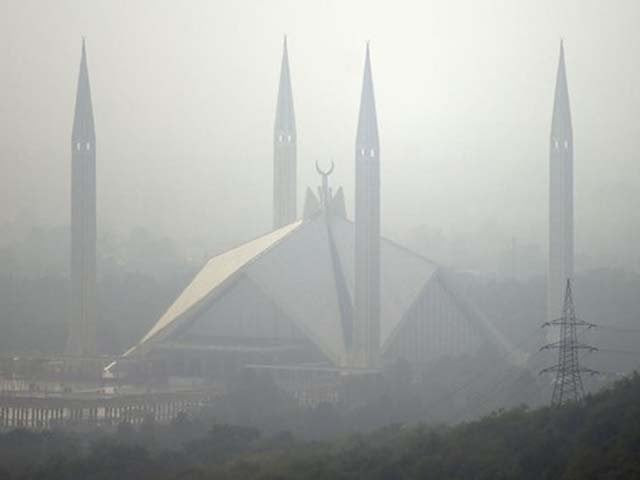Thousands affected as air quality plummets
Over 8k sufferers sought treatment in twin cities in 24 hours

The air pollution index in Rawalpindi and Islamabad has reached dangerous levels, causing a surge in cases of colds, flu, coughs, and conjunctivitis.
According to the sources, in the last 24 hours alone, government hospitals have received 3,580 patients suffering from pollution-related illnesses, while private hospitals have treated over 5,000 patients.
Rawalpindi's air pollution index currently stands at 297, while Islamabad's has risen to 292. Experts warn that without rain in the next 24 hours, the index could surpass the critical threshold of 300, prompting potential extensions to school holidays.
Adding to the crisis, fog has started to envelop open areas such as Adiala Road, Chakri, Gorakhpur, Morgah, and Kotha Kalan during the early hours, gradually spreading to more densely populated areas of the twin cities.
Doctors advise residents to consume warm beverages like tea, green tea, coffee, and soup to combat the effects of pollution. They also urge the public to wear masks to protect against the hazardous air quality.
Earlier this month, the twin cities declared a smog emergency and anti-smog operations were launched. Further, the district administrations and the departments of higher education, health and environmental protection issued a new 12-point anti-smog advisory guideline for citizens, including civil servants and students.
Citizens have been advised to wear masks and wash their hands, mouths and eyes using clear water, wear glasses during outdoor movements, use full-sleeved shirts, avoid rubbing eyes during swelling and stay away from lighting a fire to dispose of garbage.



















COMMENTS
Comments are moderated and generally will be posted if they are on-topic and not abusive.
For more information, please see our Comments FAQ